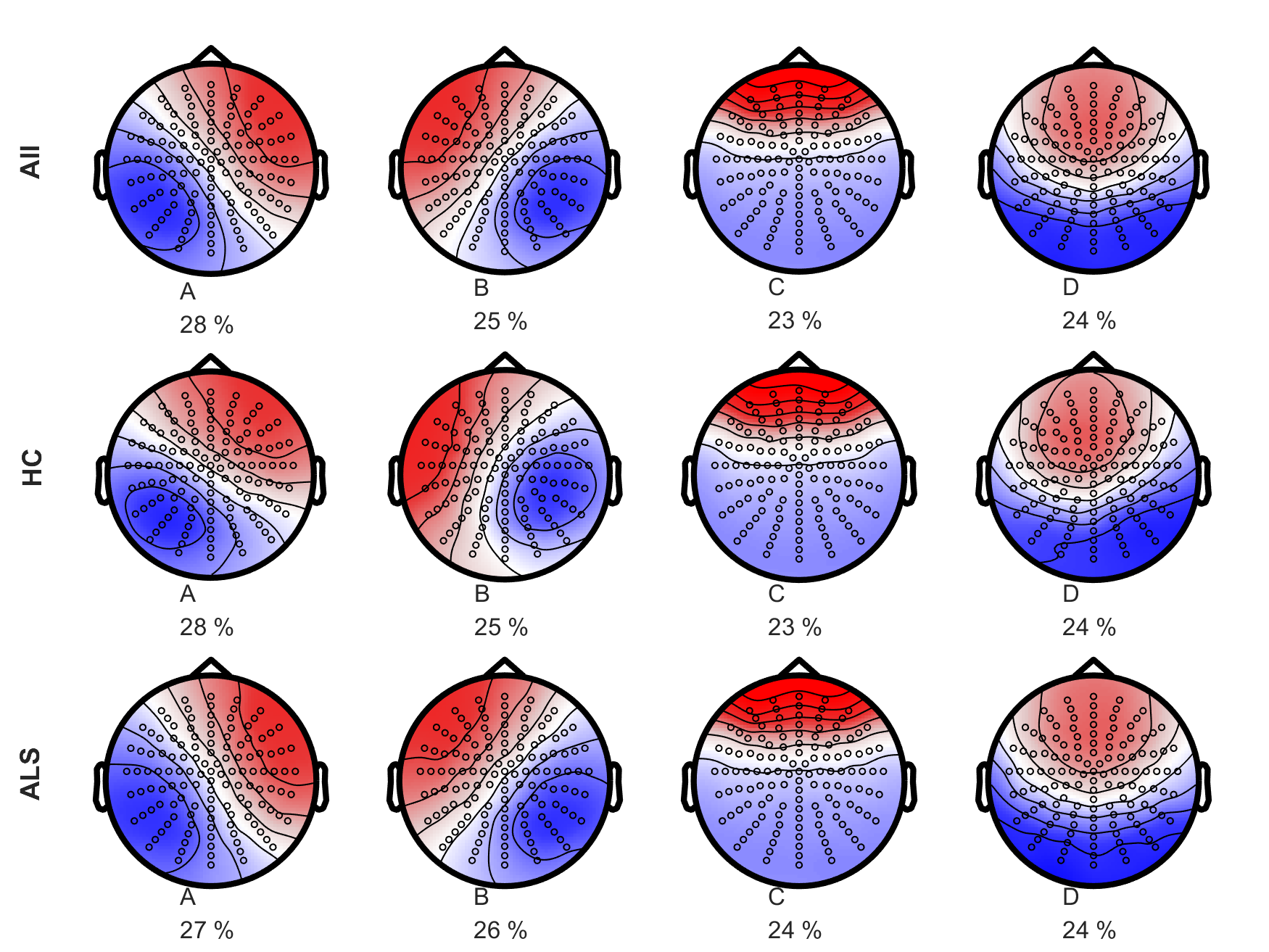Cognitive Biomarkers

Resting-state EEG
Research for ALS focuses mostly on the motor and respiratory aspects of the disease while cognitive and behavioural symptoms impact more than half of the patients (Phukan et al., 2012). Behavioural and cognitive change evaluations are especially challenging in ALS circumstances, as they usually rely on qualitative measurements based on physicians’ or a family member’s report. Quantitative, reliable measures of cognition would be helpful both for the understanding of the disease’s neural mechanisms and the impact of potential treatments.
Since previous work showed that high-density EEG measures can quantify neural networks differences between ALS and healthy-control groups, correlating with MRI findings of structural degeneration and functional clinical scores (Dukic et al., 2019; Nasseroleslami et al., 2019), the purpose of this project is to target the neural changes inducing socio-cognitive modifications along the disease progression using quantitative EEG whole-brain models. Based on resting-state EEG, we explore the two following aims to provide data-driven biomarkers of the cognitive and behavioural consequences of ALS. We study microstates of resting-state data, as per dynamic analysis and the longitudinal correlation of EEG measures with neuropsychology evaluations to build a multi-modal multi-variable quantitative measure of socio-cognitive impairment.
These combined multi-modal quantitative measures of cognitive impairment aim to provide a foundation for clinical quantitative cognitive assessments in ALS, as a measurement tool for future clinical trials.
